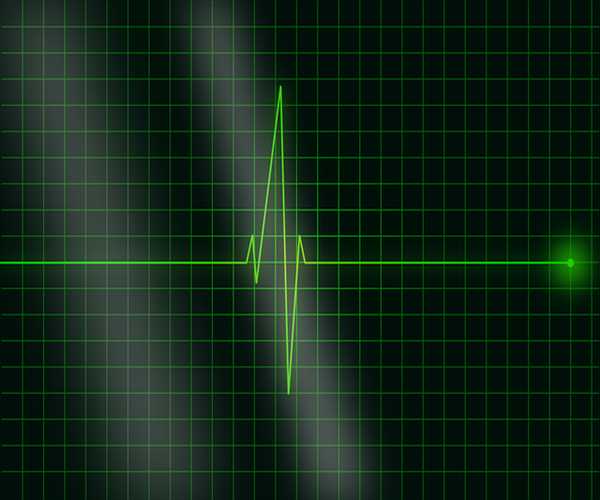
21-Sep-2022
What is an Electrocardiogram machine?
What is an electrocardiogram?
The electrocardiogram (ECG) is one of the simplest and fastest tests used to assess
heart function. Electrodes (small plastic patches that stick to the skin) are placed on specific areas of the chest, arms, and legs. The electrodes are connected to the ECG machine by wires. Then the electrical activity of the heart is measured, described, and printed. It is not the electricity of the body. Natural electrical stimulation coordinates the contractions of different parts of the heart to ensure adequate blood flow. An EKG records these impulses to show how fast your heart is beating, the heart rate (regular or irregular), and the strength and timing of the electrical impulses traveling through different parts of the heart. EKG changes can be a sign of many heart-related conditions.
Why might I need an EKG?
A few reasons to request an ECG from a doctor:
Find chest pain
Serious fatigue, breathing, rotation, rotation or evaluation of weakness
I can't get a heartbeat
Helps determine the general health of the heart for procedures such as surgery. Or heart rate (myocardial or brain infarction), endocarditis (inflammation or infection of one or more cardiac valves); Or after a heart-to-heart surgery or tear
Ensure that the transplanted impulse regulator works
I think the carriers are working for a specific.
Get the basis of heart function during physical examination. Can be used compared to the future ECG.
The doctor may have other reasons recommended for ECG.
What is the risk of ECG?
Electrocardiography (ECG) is a quick and easy way to assess heart function. Risks associated with EKG are few and rare. You won't feel anything during EKG, but removing the sticky electrode can be uncomfortable. Applying the electrode patch for too long can cause tissue damage or skin irritation. You may have other risks depending on your specific medical condition. Talk to your doctor about your concerns before the test. Certain factors or conditions may or may not affect EKG results. This includes but is not limited to:
obesity
Pregnant
Accumulation of fluid in the abdomen (ascites)
Anatomical considerations such as the size of the chest cavity and the position of the heart in the chest
movement during testing
Exercising or smoking before the test
certain medications
Electrolyte imbalance, such as too much or too little potassium, magnesium, or calcium in the blood
How to prepare for an electrocardiogram?
Your doctor or technician will explain the test and ask you questions.
Fasting (no meals) is not usually required before the test. Tell your doctor about all the drugs (prescription and over-the-counter), vitamins, herbs, and supplements you take.
If you have a pacemaker, tell your doctor. Depending on your medical condition, your doctor may require other special training.
What happens during an electrocardiogram?
An electrocardiogram (ECG) may be obtained on an outpatient basis or as part of a hospital stay. The steps may vary depending on your situation and your doctor's experience. In general, ECG follows this process.
We are asked to eliminate other articles that can break jewelry or tests.
We are asked to remove the clothes from the waist. Our technicians will cover you with a sheet or shirt and ensure your privacy by exposing only the skin you need.
For testing, lie down on a table or bed. It is important to stay still and not talk during the ECG to avoid altering the tracing.
If you have a lot of hair on your chest, arms, or legs, the technician may shave or cut a small section of your hair to attach the electrodes to your skin if necessary. Electrodes are attached to the chest, arms, and legs.
Wires are attached to the electrodes. Once the cables are connected, the technician can enter your identifying information into the device's computer.
Start an EKG. The route takes a little time.
After the monitoring is complete, the technician disconnects the wires and removes the electrodes from the skin. What happens after an electrocardiogram?
You should return to your usual diet and activities unless your doctor tells you otherwise. There are usually no special problems after an electrocardiogram (ECG).
Before EKG, tell your doctor if you have any signs or symptoms (such as chest pain, shortness of breath, dizziness, or fainting). Doctors can provide different guidance according to certain situations.
The next stage
Before you agree to the test or procedure, make sure you know:
Test or procedure name
Reasons for testing or procedures
In waiting and what does it mean
The risk and advantages of testing or procedures
Some side effects or complications
When and where is the test or procedure
Someone who performs a test or procedure and is qualified by him
What happens without a test or procedure?
All alternative tests or procedures
When, how can you get the results
If there is a question or problem, someone needs to sound the test or procedure.
How much to pay for the test or procedure

Student
An inquisitive individual with a great interest in the subjectivity of human experiences, behavior, and the complexity of the human mind. Enthusiased to learn, volunteer, and participate. Always driven by the motive to make a difference in the sphere of mental health - and normalize seeking help through a sensitive and empathetic approach
Join Our Newsletter
Subscribe to our newsletter to receive emails about new views posts, releases and updates.
Copyright 2010 - 2026 MindStick Software Pvt. Ltd. All Rights Reserved Privacy Policy | Terms & Conditions | Cookie Policy